‘Invisible’ in Malaysia: Why are people born here stateless and will the govt’s citizenship proposals fix or worsen the problem?
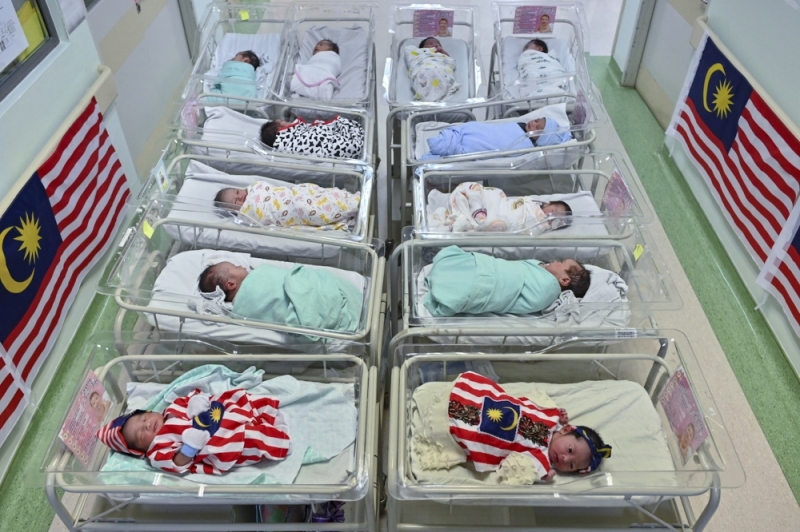
Merdeka babies born on August 31, 2022 are pictured at Hospital Sultanah Nur Zahirah in Kuala Terengganu. — Bernama pic
Friday, 30 Jun 2023 7:00 AM MYT
KUALA LUMPUR, June 30 — Being stateless in Malaysia is like being “invisible” as Malaysian authorities do not even collect official data on how many such people are here.
And what does “stateless” even mean? It quite simply means someone who is not a citizen of any country in the world.
They can be born in Malaysia but are not recognised by the government as Malaysians, and are also not recognised as citizens by other country.
How do people end up being stateless in Malaysia? What is the Malaysian government planning to do and will their proposed changes to Malaysia’s citizenship laws make it better or worse for stateless children?
Here’s what Malay Mail was told by three experts on cases involving stateless children:
1. Born in Malaysia, but stateless ... and more
Lawyer Jasmine Wong, who has represented stateless clients and parents of stateless children in court, said those who become stateless in Malaysia are “largely due to gender inequality in our laws and the lack of legal identification documents such as birth certificates or marriage certificates from their parents”.
Wong said some parents lack awareness of the importance of registering their child’s birth, which would result in the child not having a birth certificate or an identity document.
“Without a birth certificate, it would be very difficult to show that the child was born in Malaysia or the identity of the child’s parents, and that the child is entitled to citizenship,” the vice president of the Association of Women Lawyers told Malay Mail.
Wong said that even if the child’s birth is registered and he/she has a birth certificate, the National Registration Department (NRD) can still label him/her as non-Malaysian.
“The NRD will issue a red birth certificate stating ‘Bukan Warganegara’ (Non Citizen) to several categories of children despite their birth in Malaysia: 1) Foundlings or abandoned children with no information on their parents; 2) Children born out of wedlock to a Malaysian father and non-citizen mother; 3) Children born to stateless parents; 4) Children who were born to non-citizen mother and unknown father but were subsequently adopted by Malaysian citizens.

Lawyer Jasmine Wong said that even if the child’s birth is registered and he/she has a birth certificate, the National Registration Department (NRD) can still label him/her as non-Malaysian. — Picture courtesy of Jasmine Wong
“The NRD will also not recognise a child as a Malaysian citizen if the child was 1) born overseas and out of wedlock to a Malaysian father; and 2) born overseas to a Malaysian mother,” she said.
Lawyer Sharmila Sekaran, who chairs child rights’ group Voice of Children (VoC), said stateless persons should not be lumped together with refugees, as not all stateless persons are necessarily refugees.
“People need to take time to learn and understand the difference between a stateless person, an undocumented person, a migrant and a refugee. They are not the same at all, and it is ignorant and dishonest to categorise them as one,” she said.
Refugees generally refers to those who fled their country of origin due to conflict or persecution, while migrants are generally foreigners or citizens of another country who moved to Malaysia to live and work.
Sharmila said undocumented persons are not necessarily migrants who may lack legal papers for entry or to remain, but could also be Malaysian children born in Malaysia to Malaysian parents.
For example, some Orang Asli or Orang Asal or those living in poverty who failed to inform the NRD of their child’s birth will result in the child not having a birth certificate and becoming undocumented, and this child would then risk being stateless — such as when the child is unable to prove Malaysian parentage when both parents die before the child’s birth could be registered, she said.
A stateless person is not a citizen of any country and this means that a stateless person will remain in Malaysia if they live here, with Sharmila saying: “They have no country that we can send them to, and no country will receive them.”
For Rohingya refugees who are already stateless before coming to Malaysia due to a possible combination of laws, “policy, racism, misplaced nationalism, xenophobia or conflict”, Sharmila said Malaysia cannot be expected to find a solution on its own and that there needs to be at least an Asean or international response to their statelessness.
But Sharmila said there are “low-hanging fruits” or other categories of statelessness which Malaysia can more easily resolve by recognising them as Malaysians, such as children with at least one Malaysian parent, children adopted by parents (at least one of whom is Malaysian), foundlings and abandoned babies, children without citizenship under the Department of Social Welfare or registered children homes.
“Stateless children who are born in Malaysia do not know anything else or any place else. It is not a choice for them; circumstances have been foisted upon them. They are not choosing to be in Malaysia over another country. The fact is, they are stateless by virtue of not being a citizen of any other country,” Sharmila said.
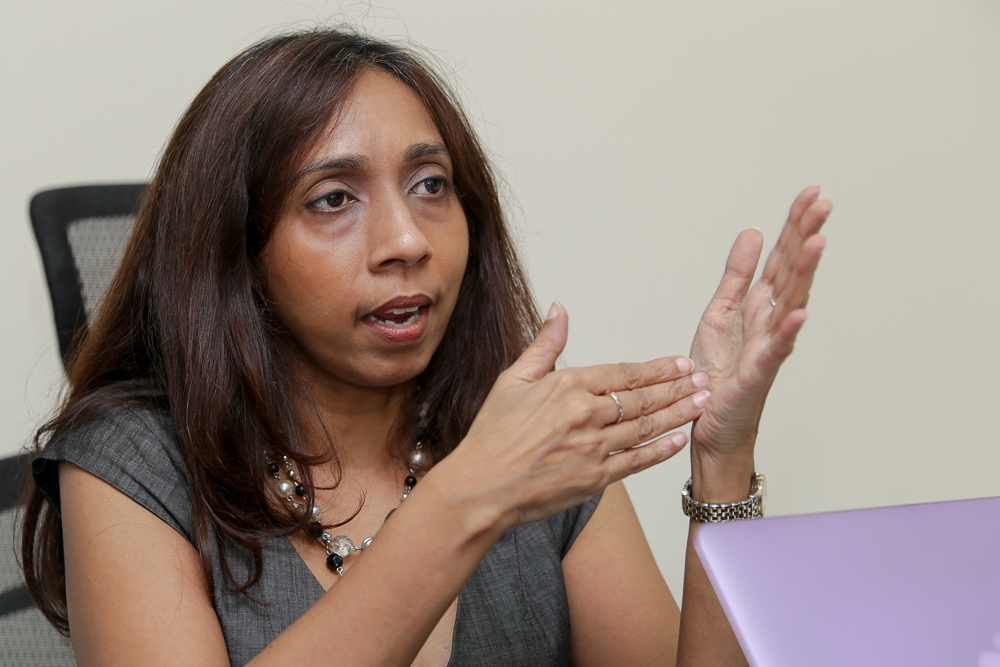
Lawyer Sharmila Sekaran, who chairs child rights’ group Voice of Children (VoC), said stateless persons should not be lumped together with refugees, as not all stateless persons are necessarily refugees. — Picture by Choo Choy May
Child rights activist Datuk Hartini Zainudin, co-founder of Yayasan Chow Kit (YCK), said she has come across thousands of stateless cases in the course of her work, and added that stateless children have been wrongly viewed and statelessness is not something that they chose.
“Stateless children have no choice. They’re not recognised as being citizens of Malaysia. Assuming wrongly that they’re foreigners and some devious phantom evil adults and foreigners are planting babies and children in Malaysia so adults can get citizenship — that’s not how it works,” she said.
Hartini cited around 10 different categories of statelessness in Malaysia including Orang Asli and Orang Asal who were born in Malaysia but undocumented or never registered at birth and Malaysia-born children who were abandoned by their biological parents or adopted by Malaysians, saying the assumption that all stateless children are foreigners are “not true”.
“Only Rohingyans are both refugees and stateless because they’re not recognised as citizens of their own country,” she said, saying that the other types of stateless persons in Malaysia are those born here with either no or incomplete documents, internally displaced, have never left the country and will most probably die here.
Hartini said the impact of being stateless — which she described as akin to being “invisible” — is “horrific”, noting as a guardian to stateless children with disabilities that they are not able to even get access to rehabilitation programmes.
Development of Human Resources for Rural Areas (DHRRA), a group which has been helping stateless persons for years, has resources on its website listing stateless categories (those who arrived or were born locally before Malaysia’s formation, children born out of wedlock to Malaysian fathers here, children born overseas to Malaysian mothers, abandoned children and foundlings, stateless adopted children, the nomadic Bajau Laut) and those at high risk of statelessness (the Orang Asli and Orang Asal, multigenerational migrants and refugees).
In short: The children did not choose to be stateless, they were born but not recognised as Malaysians, due to various reasons.
2. What are the government’s proposed citizenship amendments and how will they affect stateless children in Malaysia?
Last Friday, the Home Ministry in a briefing told civil society organisations of its plans to make changes to citizenship rules in the Federal Constitution, including to finally enable Malaysian mothers to pass on their citizenship to their overseas-born children, just as Malaysian fathers are already able to do.
But the civil society groups immediately expressed concern over the government’s other proposed amendments to the Federal Constitution to remove existing constitutional protections that were meant to prevent children from becoming stateless.
Wong, who was present at the briefing, said the intention to prevent statelessness has been present since 1948 at the formation of the Federation of Malaya (now Peninsular Malaysia). But the Home Ministry now is suggesting abolishing a protection against statelessness in Malaysia.
“One of the biggest proposed amendments is the removal of Section 1(e) in Part II of the Second Schedule of the Federal Constitution. Section 1(e) has been the safeguard against statelessness since Malaya was formed.
“It has benefited various categories of impacted children such as children separated from parents with no proof of parentage, children born out of wedlock, adopted children, and children who were born to stateless parents,” she said.
Under Section 1(e), every person born within Malaysia and who is not born a citizen of any country is entitled to be a Malaysian citizen because of the law. In other words, Section 1(e) states they have the right to be Malaysians.
Citizenship lawyers have often argued in court that such Malaysia-born persons are stateless, if they have not acquired the citizenship of any other country within a year of their birth (based on Section 2(3)) and if the government still refuses to recognise them as Malaysians.
Wong also highlighted that another proposed amendment will have a huge impact on babies found abandoned at birth, where the Home Ministry proposed changing the law to make them entitled to citizenship by registration instead of citizenship as of right.
“This proposal will effectively subject the foundlings and abandoned children to the absolute discretion of the Home Minister,” she said.
She said such a proposal is contrary to the Federal Court’s decision in the case of CCH & Anor v Pendaftar Besar Bagi Kelahiran dan Kematian, Malaysia [2022] 1 MLJ 71, where the court decided that a child born and abandoned in Malaysia and whose biological parents are unknown will be entitled to Malaysian citizenship.
“The Federal Court explained that the Constitution places the burden on the government to investigate the child’s birth, and if the NRD is not able to find any evidence as to who the child’s biological parents are, the NRD should register the child as a citizen by operation of law,” Wong said.
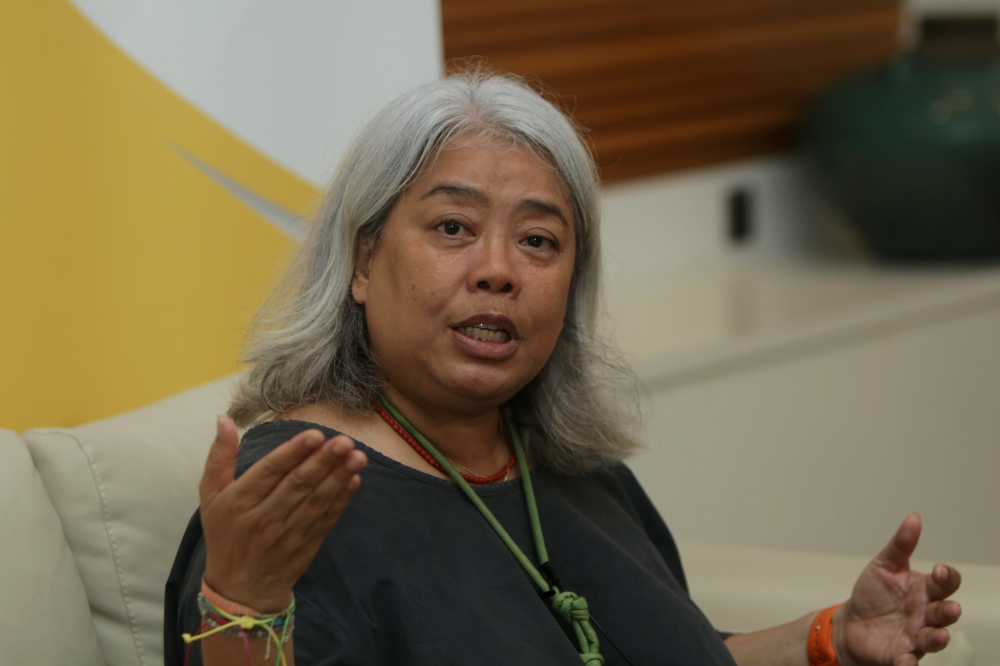
Child rights activist Datuk Hartini Zainudin said Malaysia should not treat children as a threat to national security, cautioning that the government’s proposed amendments to remove the protection against statelessness would be ‘most cruel’, ‘ill-advised’ and counter-productive. — Bernama pic
Instead of trying to stop births out of wedlock — which would include teenage pregnancies — by amending the Federal Constitution to make it harder for such children to be citizens, Hartini said the government should directly tackle the root causes such as why baby dumping happens or related social issues such as baby selling.
“Think you need to look at root causes. Go promote sex education. And stop baby dumping. The babies are foundlings,” she said. Police recorded 789 babies being dumped in Malaysia from 2015 to 2021.
Hartini said Malaysia should not treat children as a threat to national security, cautioning that the government’s proposed amendments to remove the protection against statelessness would be “most cruel”, “ill-advised” and counter-productive.
“The children aren’t a national security threat, the amendments are. These amendments will deny children basic rights to health, education, jobs, a way to earn a decent living.
“The children aren’t foreigners. These horrible amendments will guarantee they remain stateless and foreigners in their own country, when they’re really — under the Federal Constitution — Malaysians,” she said, adding that these children will become “invisible” as well as becoming “no country’s citizens.”
“That’s the importance of Section 1(e). You remove Section 1(e), which is one of the proposed amendments, the children have nothing. No protection. No guarantee of citizenship.
“You think you’re deterring statelessness? These amendments if passed will guarantee more statelessness,” Hartini, whose YCK organisation was present at the briefing, said.
Removing the guaranteed right to citizenship under Section 1(e) will result in stateless children having to apply for citizenship and be at the mercy of the Home Minister’s discretionary power, Hartini said.
Sharmila, whose organisation VoC was also present in the briefing, said: “Not only will the proposals not address many categories of childhood statelessness and make it more difficult for children in the above categories to obtain citizenship, it will create further categories and exacerbate the problem. More children will become stateless.
“The proposed amendments reveal a lack of foresight and seem rather myopic. Let us not, by our lack of knowledge and understanding, create serious economic problems and social ills in our society and nation at large.”
Sharmila said stateless children denied access to basic healthcare means they will not receive the usual immunisation upon birth and even as adults unlike Malaysians, leaving them more exposed to communicable diseases.
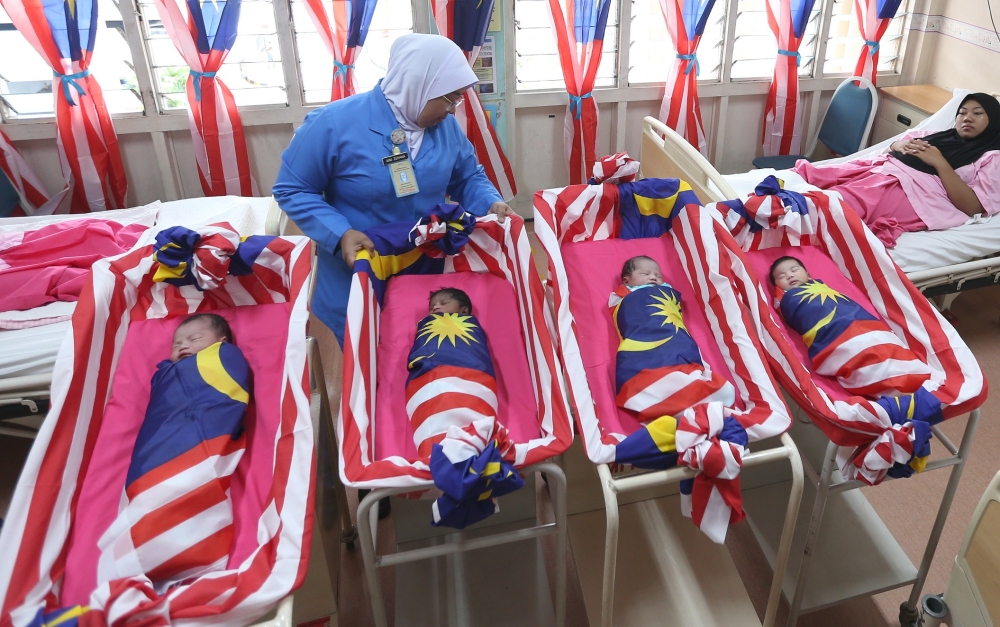
For stateless children denied access to formal education, they may end up facing literacy issues and being low-skilled and having to join the informal work sector which may expose them to being abused, violated and exploited. — Picture by Razak Ghazali
This could also result in the rest of society becoming more exposed as the illnesses mutate and ultimately lead to a greater economic problem.
For stateless children denied access to formal education, they may end up facing literacy issues and being low-skilled and having to join the informal work sector which may expose them to being abused, violated and exploited.
Their children may then be stuck in the same cycle of statelessness, low skills and poverty, she said.
Former women, family and community development minister Tan Sri Shahrizat Abdul Jalil had in a June 25 statement said children are innocent and should not be blamed for the situation they find themselves in, adding that making it more difficult for abandoned babies to become Malaysians will not discourage their parents from abandoning them out of desperation and that removing protections against statelessness for them will only create more challenges.
Last Saturday, civil society groups said it is understood that the government is planning to finalise these proposals before presenting them to the Conference of Rulers on July 12.
In short: The proposed amendments may cause more children in Malaysia to be denied Malaysian citizenship and to be stateless. The problem will become worse.
3. More consultation needed; streamlining SOPs a quick, temporary fix
Wong said Malaysia’s citizenship laws are “not entirely perfect”, and some need amendments such as to remove the illegitimate clause under Section 17 (which the government has interpreted to say children born out of wedlock to a Malaysian father and non-Malaysian mother should follow the mother’s nationality) and to perhaps consider inserting a clause for stateless adopted children.
Apart from helping Malaysian mothers with overseas-born children, Wong said the government should not rush into amending the other citizenship provisions in the Federal Constitution which will affect childhood statelessness without seeking further feedback and consultation with all relevant stakeholders.
But at the same time, the government should for now make the standard operating procedures (SOPs) and process for stateless persons to apply for citizenship easier first as a temporary measure, she said.
Urging the government to streamline the SOPs for citizenship applications at the NRD, Home Ministry and embassies, Wong said: “The government should register children as citizens so long as they are able to show that one parent is a Malaysian citizen, without looking at the parents’ marital status.”
She said there are times when citizenship applicants are not able to even get the necessary forms from the NRD, as NRD officers act as “gatekeepers”.
“When they do a preliminary check of the applicant’s documents and are of the view that the applicants have insufficient documents, they will refuse to give the application forms to the applicants. So essentially, the applicants are denied their right to even submit and have their application considered,” she said.
Even when the citizenship applicants were able to submit their applications, they faced a long waiting time for a response and their citizenship applications would most of the time “be rejected without any reasons given”, she said.
“This current practice is affecting our children because for each day their citizenship status is not solved, that is one more day for them not being able to access their right to health, education and social services,” Wong said.
Sharmila said the current proposed amendments have the effect of “penalising the child”, and said the government should instead propose amendments that are “child-centred and with the desire to resolve childhood statelessness”.
“This does not mean giving citizenship to all and sundry; but to ensure that children within our borders have safeguards and can obtain citizenship if they have none,” she said.
While some changes to the Federal Constitution or laws may be necessary, Sharmila said a lot of the issues can actually be resolved administratively, with the right regulations, systems and processes.
“In fact, the Federal Constitution as it is, already offers safeguards which is why much of the problem is administrative and needs clear regulations and guidelines with clear timelines, and not ad-hoc application of policies,” she said.
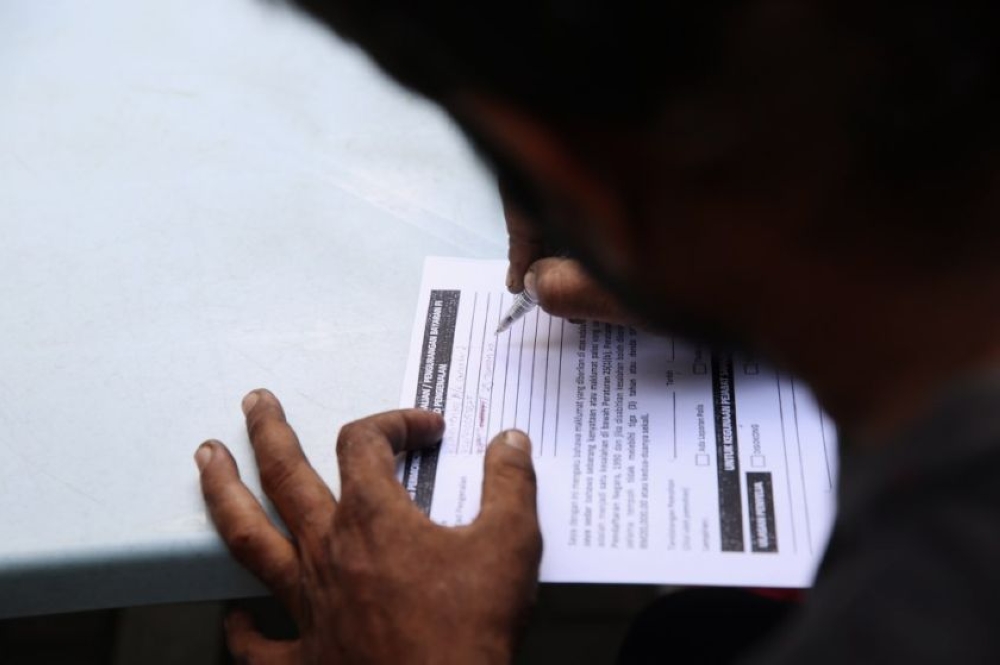
File picture of a person filling up an application form for MyKad before going to the NRD in Kuala Lumpur, July 21, 2014. — Picture by Choo Choy May
4. It’s not a package deal
While the Malaysian government is working on updating the Federal Constitution to stop gender discrimination against Malaysian women who give birth overseas, these long-awaited changes can be made separately without having to package them together with the proposed amendments which could remove protections from becoming stateless.
Currently Section 1(b) and Section 1(c) of Part II of the Second Schedule of the Federal Constitution states that every person born outside Malaysia to a Malaysian “father” will be a Malaysian by operation of law.
The Malaysian government has interpreted this to mean that only Malaysian men can confer citizenship to their overseas-born children.
Wong said the government’s “intention in wanting to amend the unequal gender provisions in Sections 1(b) and 1(c) to allow Malaysian mothers to confer citizenship to their overseas-born children is commendable.
“However, the amendment of replacing the word ‘father’ to ‘at least one of the parents’, is a standalone amendment. This amendment should not be grouped together with the proposed amendments which will affect individuals born in Malaysia or those concerning childhood statelessness, to the detriment of Malaysian mothers.
“The Bill for automatic citizenship of children born overseas to Malaysian women should be tabled in Parliament as soon as possible and should not be delayed any further,” she said.
Similarly, Hartini said the current proposed amendments — including the removal of the Section 1(e) protection — affect children born out of wedlock and children adopted by Malaysian parents which make up the bulk of applications for Malaysian citizenship, stressing that the government can instead just go on with the amendments for Malaysian mothers with overseas-born children.
“Do not remove Section 1(e) ... just push through agreed amendments affecting Malaysian mothers whose children are born abroad to foreign fathers,” Hartini said.
The earliest that the proposed constitutional law changes (for Malaysian mothers to pass on their citizenship to their overseas-born children) can reach Parliament would be October, with the Dewan Rakyat’s next meeting scheduled from October 9 to November 30, while the Dewan Negara is set to meet on November 27 to December 14.
In short: The proposed law changes for Malaysian mothers’ overseas-born children to automatically have Malaysian citizenship can and should just move on ahead first.
No comments:
Post a Comment